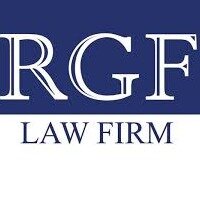Best Conveyancing Lawyers in Puerto Rico
Share your needs with us, get contacted by law firms.
Free. Takes 2 min.
Free Guide to Hiring a Real Estate Lawyer
Or refine your search by selecting a city:
List of the best lawyers in Puerto Rico
About Conveyancing Law in Puerto Rico
Conveyancing refers to the legal process of transferring property ownership from one person or entity to another. In Puerto Rico, conveyancing is governed by a mix of local laws under the Civil Code, specific statutes, and administrative processes overseen by government agencies. The process requires careful analysis and documentation to ensure good title, proper registration, and compliance with contractual and statutory requirements. Every real estate transaction in Puerto Rico must adhere to strict legal standards to protect the rights of both buyers and sellers.
Why You May Need a Lawyer
Although some conveyancing steps may seem straightforward, the reality is that most people benefit from hiring a qualified attorney. Common situations where legal help is advisable include buying or selling property, resolving disputes over property boundaries, transferring inherited real estate, clarifying title issues, drafting or reviewing deeds and sales contracts, and addressing liens or encumbrances on a property. A lawyer ensures that documents are accurate and valid, that your interests are protected throughout the process, and that all transactions comply with Puerto Rico’s legal and tax requirements.
Local Laws Overview
Puerto Rico follows a civil law system, which differs from the common law traditions in the mainland United States. The Puerto Rico Civil Code, as amended, is the primary source governing property transactions. Title to real estate is formally recognized only once the deed is executed before a Puerto Rico notary and recorded at the Puerto Rico Property Registry. Only licensed Puerto Rico attorneys can act as notaries. Every purchase or sale requires notarial instruments, public deeds, and registration documents. Local laws also specify conditions for mortgages, easements, co-ownership, inheritance rights, and taxation of real estate transactions. Understanding these requirements is essential for a successful conveyancing process.
Frequently Asked Questions
What is conveyancing?
Conveyancing is the legal process of transferring legal title of real property from one person or entity to another, including the preparation, execution, and recording of all necessary documents.
Do I need a lawyer to buy or sell property in Puerto Rico?
Yes, all deeds must be prepared by a licensed attorney-notary in Puerto Rico. Lawyers play a central role in reviewing titles, preparing contracts, and handling registration.
What documents are needed for conveyancing in Puerto Rico?
Common documents include the purchase and sale agreement, public deed of sale, evidence of title, tax certifications, property appraisals, and identification documents for all parties.
How is property title registered in Puerto Rico?
Title is registered with the Puerto Rico Property Registry. Registration makes your ownership publicly official and is necessary for legal protection and future transactions.
Are there taxes involved in property transfers?
Yes. Transactions may be subject to stamp duties, notarial fees, and transfer taxes. Both buyers and sellers may encounter additional municipal taxes and recording costs.
How do I know if a property has a clean title?
A lawyer will conduct a title search at the Property Registry to check for liens, encumbrances, unresolved inheritance claims, and other potential problems.
Can a property be co-owned in Puerto Rico?
Yes. Puerto Rico law allows property to be owned jointly by two or more people, with specific rules regarding partition, sale, or transfer.
Does Puerto Rico follow the same conveyancing rules as the mainland United States?
No. Puerto Rico has its own civil law system, procedures, and requirements which differ from U.S. state practices. Consulting a local lawyer is crucial.
What is the role of a notary in Puerto Rico?
In Puerto Rico, only a practicing attorney may act as a notary. The notary is responsible for drafting, witnessing, and authenticating public deeds required for property transfer.
How long does the conveyancing process take?
The timeline depends on the complexity of the transaction, but generally ranges from a few weeks to several months, especially if title issues or government approvals are involved.
Additional Resources
To better understand conveyancing in Puerto Rico, consult the following:
- Puerto Rico Property Registry (Registro de la Propiedad de Puerto Rico)
- Puerto Rico Supreme Court’s Notary Division
- Puerto Rico Bar Association
- Office of the Treasurer of Puerto Rico (for tax and recording fees)
- Municipal offices for local property tax information
These organizations can provide official guidance, disclosure forms, and public records information relevant to property transactions.
Next Steps
If you are considering buying or selling property, or need help with any aspect of conveyancing in Puerto Rico, your first step should be to consult with a licensed Puerto Rico real estate attorney. Gather all available documents about the property, such as deeds, tax records, and prior correspondence. Prepare a list of your questions and concerns, and ask your attorney to explain the process, timeline, and all potential costs involved. A qualified legal professional will guide you through due diligence, document preparation, government filings, and the completion of your real estate transaction.
Lawzana helps you find the best lawyers and law firms in Puerto Rico through a curated and pre-screened list of qualified legal professionals. Our platform offers rankings and detailed profiles of attorneys and law firms, allowing you to compare based on practice areas, including Conveyancing, experience, and client feedback.
Each profile includes a description of the firm's areas of practice, client reviews, team members and partners, year of establishment, spoken languages, office locations, contact information, social media presence, and any published articles or resources. Most firms on our platform speak English and are experienced in both local and international legal matters.
Get a quote from top-rated law firms in Puerto Rico — quickly, securely, and without unnecessary hassle.
Disclaimer:
The information provided on this page is for general informational purposes only and does not constitute legal advice. While we strive to ensure the accuracy and relevance of the content, legal information may change over time, and interpretations of the law can vary. You should always consult with a qualified legal professional for advice specific to your situation.
We disclaim all liability for actions taken or not taken based on the content of this page. If you believe any information is incorrect or outdated, please contact us, and we will review and update it where appropriate.
Browse conveyancing law firms by city in Puerto Rico
Refine your search by selecting a city.










